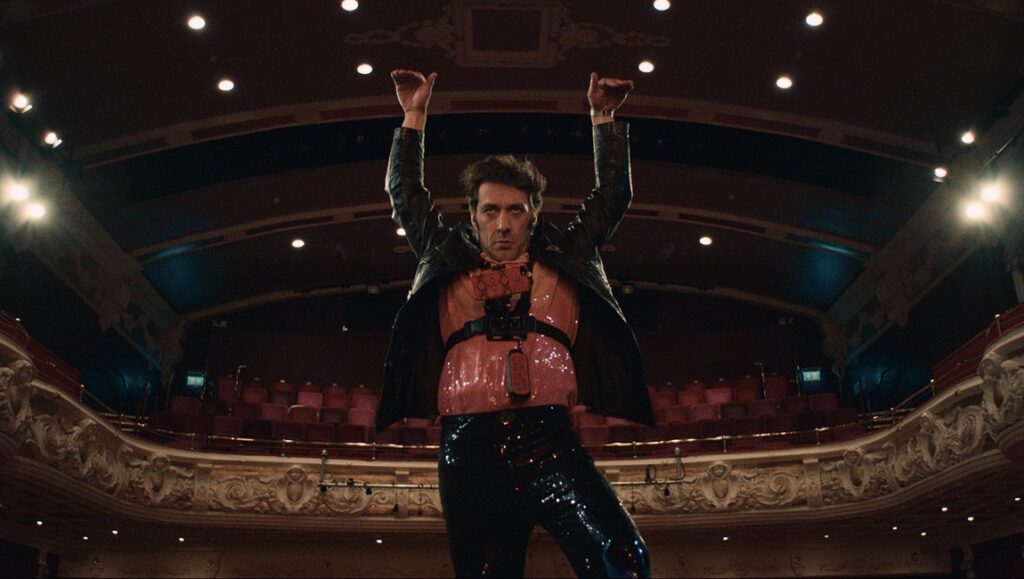The most interesting aspect of the new comedy Paul Dood’s Deadly Lunch Break is its unwieldy title, an attention-grabber that promises a rollicking good time but instead only serves to set the viewer up for disappointment. This low-energy Edgar Wright knock-off assembles an ace squad of British film and TV stars — including Tom Meeten, Katherine Parkinson, Kris Marshall, and Alice Lowe, among others — and gives them next to nothing to do, presenting a “satire” that feels about 20 years too late to the party. Paul Dood (Meeten) is a middle-aged sad-sack still living with his elderly mother and working a menial job at a resale shop in the local mall. Paul desperately wants to be a flashy rock star in the vein of David Bowie — all handmade, sequined jumpsuits and flowy scarves — and sees his opportunity when a hit reality television show in the vein of America’s Got Talent holds auditions near his sleepy English village. Unfortunately, five individuals end up preventing Paul from achieving his dreams, and so he goes on that titular lunch break, exacting revenge on those who have turned his life into a living hell.
Unfortunately, director/co-writer Nick Gillespie muddles his intentions regarding our protagonist: is Paul some pathetic loser meant to be mocked and ridiculed, or is he a committed, driven man whose misfortunes deserve our sympathy? The answer, it turns out, is basically, “whatever is convenient to the plot,” resulting in an inconsistent and bumpy ride. It doesn’t help that the five people he sets out to kill are rendered as cartoonish villains, their selfish acts presented in the most banal ways possible. It’s the same joke, ad nauseam: an unfounded sense of superiority plagues each individual Paul encounters, ultimately preventing him from reaching his destination in time, whether it be a railway worker who doesn’t know how to assemble a ramp or a devious priest and his assistant who steal a taxi in the name of God. And it’s not even worth getting into the Englishman who fancies himself a Japanese samurai —there is far too much to unpack (or, maybe not) there. Even the revenge scenarios are plagued by repetition, as each person inadvertently causes their own demise, leaving Paul blameless. Meanwhile, Paul is chronicling his events over the Internet, leading him to become a worldwide sensation. Not that this film actually has anything to say about the connection between fame and infamy, though, as that would imply it was even remotely successful as a satire instead of merely latching on to anything that seems topical. The sheer laziness on display reaches its zenith at film’s end, with text telling us what happens to these characters after the events of the film, a conceit that stopped being funny around the time of Animal House and ludicrously suggests that any viewer would ever give another thought to these characters once the credits roll. It proves especially surprising that Gillespie — who has served as second unit director on numerous Ben Wheatley films and as DP for Shade Meadows — would produce digital imagery this dull and lifeless. Perhaps he was as uninspired by the material as every viewer forced to sit through it. Shout-out to Meeten, though, who gives a truly game performance — he’s the only one who makes it out of this lunch break unscathed.
Published as part of SXSW Film Festival 2021 — Dispatch 3.


Comments are closed.